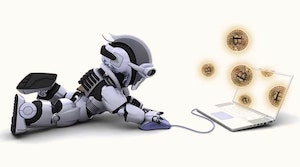TOKYO, Jun 09 (News On Japan) - Generative AI is no longer a distant concept. With features now integrated into smartphones, AI is becoming a familiar presence in daily life. But its impact is spreading far beyond convenience — reaching even into Japan’s most competitive university entrance exams and transforming business operations.
In February, the day after entrance exams for the University of Tokyo concluded, the AI startup LifePrompt conducted an experiment: could AI pass the grueling Tokyo University science course (Science III) exam? Competing tools included the American ChatGPT-4 and China’s newly developed DFCR-1. The challenge was to solve actual exam questions using AI. ChatGPT completed the task in about 20 minutes, while DeepSeek, another AI model, took 33 minutes. When combined with mock scores for the first-round exams, ChatGPT earned 374 points, and DeepSeek scored 369 — both exceeding the 368-point threshold typically required to pass.
LifePrompt, founded in 2023 by graduate student Satoshi Endo, continues to develop AI tools that target real-world applications. Endo said that despite AI outperforming in complex subjects like physics and mathematics, it still struggles with visual tasks. "When asked to select the correct graph from several choices, humans can intuitively spot the differences, but AI can't. It’s ironic that an AI capable of passing university exams cannot solve problems that even preschoolers can," he noted.
Still, ChatGPT's physics score improved dramatically from 5 points last year to 45 this year. Endo attributes this to the AI's growing ability to combine knowledge across fields. "AI can link concepts in unexpected ways, like connecting something from Japan with something from Africa. In that sense, it may even have more imagination than humans," he said.
Endo’s interest in AI entrepreneurship was shaped by a key encounter with consultant Tomo Mochizuki, vice president of e-commerce solutions firm Itsumo. Co-founded in 2007, Itsumo has over 200 staff and was an early adopter of AI, achieving 95% automation of internal operations with the support of LifePrompt’s AI tools.
Mochizuki explained that consulting know-how is their greatest asset, and scaling that expertise from 200 to 1,000 staff efficiently is critical. Consultant Naho Yamashita uses AI daily to analyze product reviews from clients. "When analyzing reviews, I just input the URL and move on to another task. It’s natural now — the time savings are huge."
At daily goods manufacturer STEC, AI tools were used to boost sales of underperforming products. The tools analyzed key product features like deodorizing power and longevity, processed thousands of reviews in 10 minutes, and generated optimized images and taglines. This revealed weak appeal in both product effectiveness and design. STEC then replaced product images and clarified product use, resulting in a jump to No. 1 in sales rankings.
Such AI implementation is reducing labor hours and reshaping job roles. "Tasks like creating pages, writing emails, or analyzing data may soon take just one-fifth or even one-tenth of the time," said Endo. "Companies will shift focus from routine tasks to strategy and branding — which is a good thing."
Nonetheless, this shift brings concerns. Microsoft has announced 6,000 job cuts, mostly in software development, while Salesforce is cutting 1,000 roles. At the same time, both companies are hiring for AI-related positions. The CEO of Anthropic, another AI firm, has warned that half of all entry-level jobs could vanish, and unemployment could reach 20%.
While the transformation is unsettling, some see it as a solution to Japan’s chronic labor shortage. But the transition period may bring social strain. Endo believes engineers are most at risk in the current wave, but added that routine desk tasks and call center operations are also rapidly being automated.
Yet AI adoption in Japanese companies still faces hurdles. Many firms remain uncertain about what AI can actually do and how it will fit into their workflows. Endo pointed out that many Japanese companies hesitate to invest unless they clearly see cost-saving outcomes. He also noted the difficulty of customizing AI to fit each company’s unique work culture and processes.
"Generic AI tools like ChatGPT often don’t align with a company’s internal know-how or workflow. Our job as AI consultants is to deeply understand each business and tailor solutions accordingly," he said.
Looking ahead, Endo envisions a future where working alongside AI becomes the norm. "Just like talking to colleagues, we’ll communicate with AI. But that also means we need to think carefully about permissions, security, and how much autonomy AI should have."
He concluded by stressing the widening gap between those who can leverage AI and those who cannot. "If using AI can make one person ten times more productive, that’s going to create real disparities. Adapting to that reality is one of the biggest challenges we face."
Source: TBS















